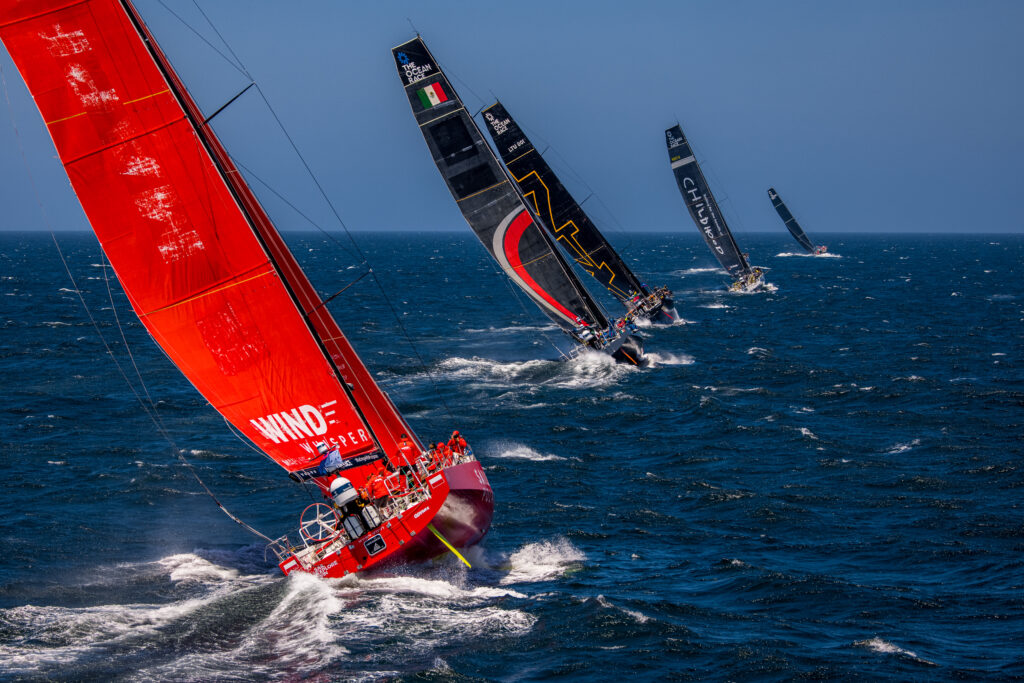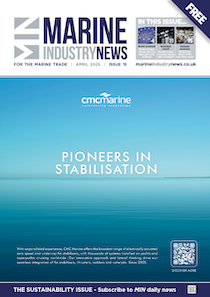The Ocean Race aims to slash emissions by 75 per cent
 Cascais, Portugal hosts The Ocean Race Europe. Image courtesy of Sailing Energy / The Ocean Race.
Cascais, Portugal hosts The Ocean Race Europe. Image courtesy of Sailing Energy / The Ocean Race.
The Ocean Race says it aims to slash its emissions by up to 75 per cent for the upcoming 2022/23 edition.
The Ocean Race is aiming to cut greenhouse gas emissions (GHGs) by up to 75 per cent, compared with the previous edition in 2017-18, and organisers say they are working closely with sailing teams, host cities, partners and suppliers.
Every element of the round-the-world sailing event has been examined to understand its GHG impacts and how they can be reduced. The race is aiming to cut emissions through a number of measures, including using significantly fewer shipping containers used to deliver the global event, reducing the number of staff travelling internationally, careful management of resources such as materials, food, waste and water, as well as aiming to power the event sites with 100 per cent renewable energy.

The race will now take place over six months, compared with nine months for the previous edition, which will also reduce the overall impact.
The Ocean Race 2022-23 will visit nine international cities over the six-month period, with leg one starting from Alicante, Spain, on 15 January 2023.
To achieve this climate-positive goal, The Ocean Race will invest in ocean projects that, on behalf of the race and stakeholders, will restore vital marine habitats while also sequestering carbon. According to The Ocean Race, These ‘blue carbon’ initiatives, in which mangroves are protected from deforestation or actively regenerated, are at carefully chosen sites around the world.
Meegan Jones, sustainability advisor for The Ocean Race says: “Sport has the power to inspire and accelerate action and nowhere is this more important than in the race against climate change. We’re drastically cutting emissions compared with the last Race in 2017-18, but creating a climate-positive event can only happen with the support and input of every organisation that the race touches.
“While some event organisers offset their partners’ emissions, we believe that the responsibility should be on everyone involved to play their part. By doing this, we don’t just reduce the impact of a single event, but help to create change throughout the industry.”
The Ocean Race is a signatory of the United Nations’ Race to Zero and Sports for Climate Action initiatives, with a commitment to halving the race’s GHGs and contributing to a net zero world by 2040.

Alessandra Ghezzi, communications director at 11th Hour Racing, says: “In the past years, we’ve seen the increasingly devastating effects of climate change, and while the public conversation around the issue has shifted from the term ‘change’ to ‘crisis’ and ’emergency’, we all need to take bolder steps to reduce our emissions. We can do this only through strategic collaborations.
“At 11th Hour Racing we are supporting The Ocean Race so they can provide the blueprint for running world-class sporting events while also being climate positive. All the how-to materials will be available online to any organisation, event, and team to set their own climate goals and strategy.”
The course for the 14th edition of The Ocean Race around the world has been updated and now includes a crossing of the Southern Ocean – the longest leg in the 50-year history of the event.











